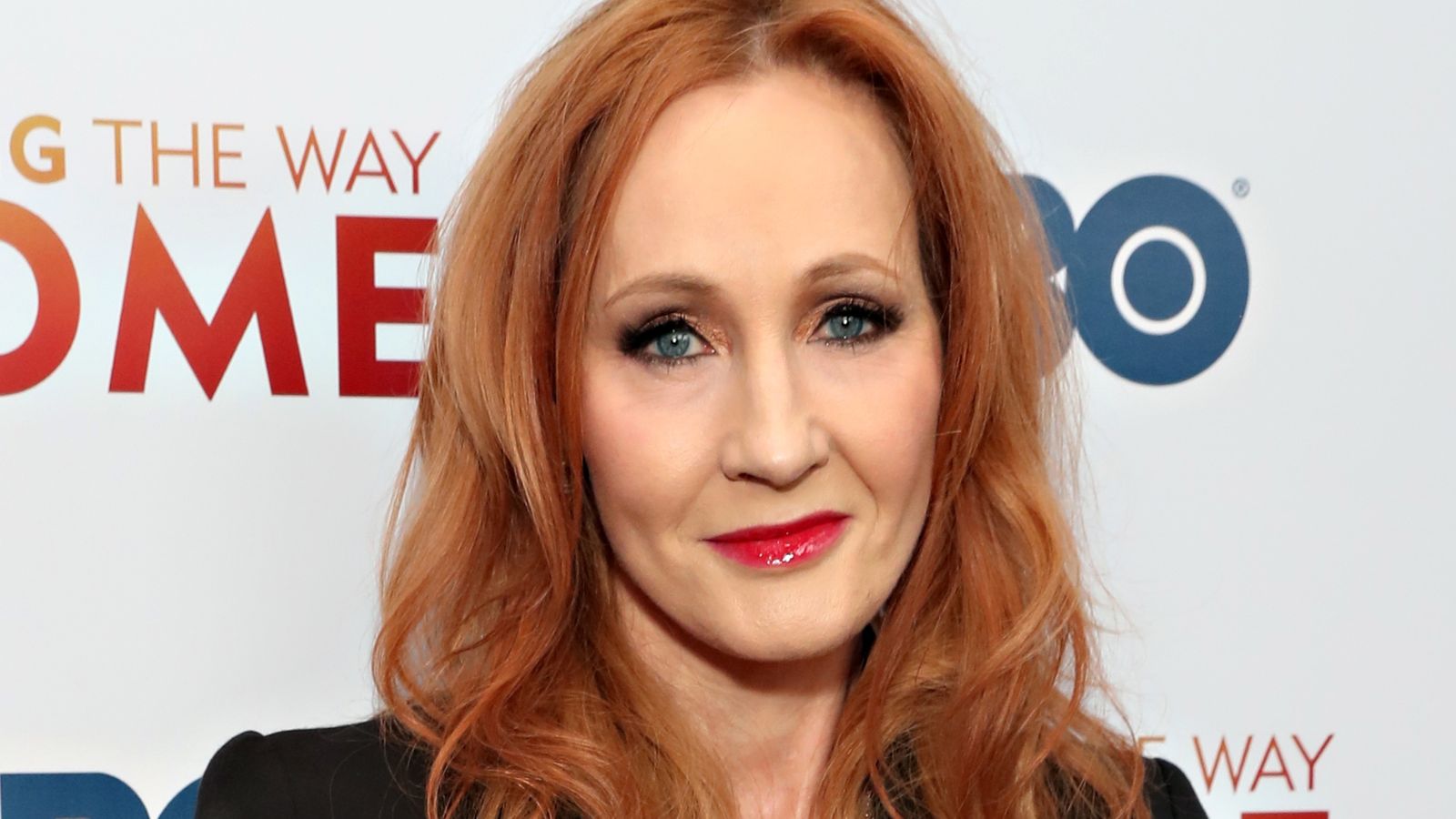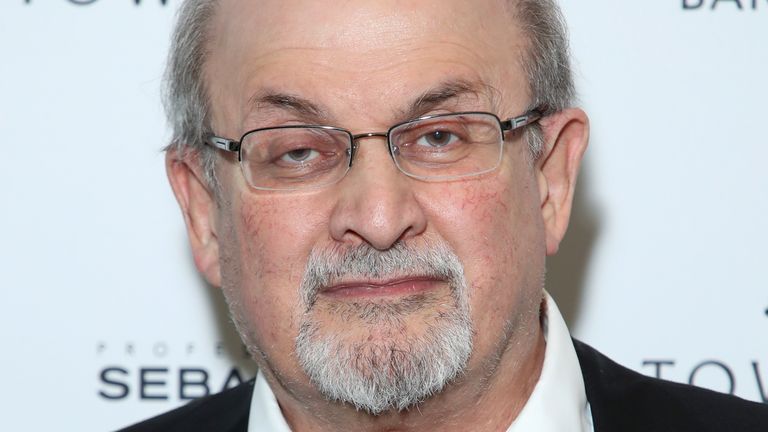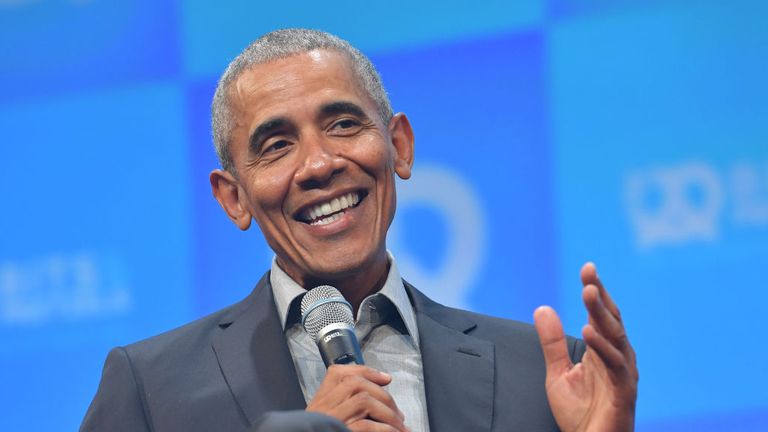JK Rowling and Salman Rushdie are among 152 writers and academics who have signed an open letter denouncing the so-called “cancel culture”.
Those who signed the letter have said they “applaud” recent protests for racial justice and greater equality, but added a “reckoning” has weakened tolerance of different opinions in favour of “ideological conformity”.
The writers and academics, including philosopher Noam Chomsky and The Handmaid’s Tale author Margaret Atwood, go on to call Donald Trump a “real threat to democracy” before saying “resistance must not be allowed to harden into its own brand of dogma or coercion”.
“Cancel culture” refers to the removal of support, including the boycott of someone, usually a celebrity or public figure, who has expressed an opinion that is perceived to be offensive.
Former world chess champion Garry Kasparov, the Canadian journalist Malcolm Gladwell and the British novelist Martin Amis also signed the letter, which continues: “The free exchange of information and ideas, the lifeblood of a liberal society, is daily becoming more constricted.
“While we have come to expect this on the radical right, censoriousness is also spreading more widely in our culture: an intolerance of opposing views, a vogue for public shaming and ostracism, and the tendency to dissolve complex policy issues in a blinding moral certainty.
“We uphold the value of robust and even caustic counter-speech from all quarters. But it is now all too common to hear calls for swift and severe retribution in response to perceived transgressions of speech and thought.”
The letter, which was published on the website of Harper’s Magazine on Tuesday, also references editors who are being fired for “running controversial pieces” and professors being “investigated for quoting works of literature in class”.
It continues: “This stifling atmosphere will ultimately harm the most vital causes of our time.
“The restriction of debate, whether by a repressive government or an intolerant society, invariably hurts those who lack power and makes everyone less capable of democratic participation.
“The way to defeat bad ideas is by exposure, argument, and persuasion, not by trying to silence or wish them away.”
Harry Potter author JK Rowling has faced opposition over her tweets about transgender people.
She has criticised the use of the phrase “people who menstruate” and suggested that trans women could pose a threat to cisgender women.
She is also facing criticism after describing hormones and surgery for transgender people as “a new kind of conversion therapy”.
Canadian author Margaret Atwood faced a social media backlash in 2018 when she expressed concerns about the #MeToo movement and called for due process in the case of a former university professor accused of sexual misconduct.
The former US president Barack Obama challenged “woke” culture last year when he said calling people out on social media doesn’t bring about change.
He said: “I get a sense among certain young people on social media that the way of making change is to be as judgemental as possible about other people.
“If I tweet or hashtag about how you didn’t do something right or used the wrong verb, then I can sit back and feel pretty good about myself because ‘man did you see how woke I was? I called you out!'”
He added: “If all you’re doing is casting stones, you are probably not going to get that far.”
The full list of people who signed the letter:
- Elliot Ackerman, US author
- Saladin Ambar, associate professor of political science at Rutgers University
- Martin Amis, British novelist
- Anne Applebaum, US journalist and historian
- Marie Arana, Peruvian author
- Margaret Atwood, Canadian author
- John Banville, Irish novelist
- Mia Bay, US historian
- Louis Begley, US novelist
- Roger Berkowitz, professor of political studies at Bard College
- Paul Berman, US writer
- Sheri Berman, professor of political science at Barnard College
- Reginald Dwayne Betts, US poet
- Neil Blair, literary agent
- David W. Blight, history professor at Yale University
- Jennifer Finney Boylan, US author
- David Bromwich, professor of English at Yale University
- David Brooks, American-Canadian political commentator
- Ian Buruma, professor of human rights and journalism at Bard College
- Lea Carpenter, US writer
- Noam Chomsky, US philosopher and political activist
- Nicholas A. Christakis, American-Greek sociologist
- Roger Cohen, British journalist and author
- Ambassador Frances D. Cook
- Drucilla Cornell, American philosopher
- Kamel Daoud, Algerian writer
- Meghan Daum, American author
- Gerald Early, American essayist
- Jeffrey Eugenides, US novelist
- Dexter Filkins, US journalist
- Federico Finchelstein, Argentinian historian
- Caitlin Flanagan, US writer and social critic
- Richard T. Ford, professor of law at Stanford Law School
- Kmele Foster, US commentator
- David Frum, American-Canadian commentator
- Francis Fukuyama, US political scientist
- Atul Gawande, US surgeon and writer
- Todd Gitlin, American sociologist
- Kim Ghattas, Lebanese journalist
- Malcolm Gladwell, Canadian journalist
- Michelle Goldberg, American blogger and author
- Rebecca Goldstein, American philosopher
- Anthony Grafton, US historian
- David Greenberg, professor of history and journalism at Rutgers University
- Linda Greenhouse, US journalist
- Rinne B. Groff, US playwright and performer
- Sarah Haider, American-Pakistani writer activist
- Jonathan Haidt, American social psychologist
- Roya Hakakian, Iran-born writer
- Shadi Hamid, American author
- Jeet Heer, Canadian author
- Katie Herzog, podcast host
- Susannah Heschel, professor of Jewish studies at Dartmouth College
- Adam Hochschild, US author and journalist
- Arlie Russell Hochschild, US author
- Eva Hoffman, Polish writer and academic
- Coleman Hughes, US writer
- Hussein Ibish, senior resident scholar at the Arab Gulf States Institute
- Michael Ignatieff, Canadian author and academic
- Zaid Jilani, journalist
- Bill T. Jones, US choreographer
- Wendy Kaminer, American lawyer and writer
- Matthew Karp, historian at Princeton University
- Garry Kasparov, leader of the Renew Democracy Initiative
- Daniel Kehlmann, German novelist
- Randall Kennedy, American law professor
- Khaled Khalifa, Syrian novelist
- Parag Khanna, Indian-American specialist in international relations
- Laura Kipnis, American cultural critic
- Frances Kissling, US activist
- Enrique Krauze, Mexican historian
- Anthony Kronman, professor at Yale University
- Joy Ladin, American poet
- Nicholas Lemann, professor at Columbia University
- Mark Lilla, American political scientist
- Susie Linfield, social and cultural theorist
- Damon Linker, US writer
- Dahlia Lithwick, Canadian-American writer
- Steven Lukes, British political and social theorist
- John R. MacArthur, American journalist
- Susan Madrak, Philadelphia-based writer
- Phoebe Maltz Bovy, US writer
- Greil Marcus, US author
- Wynton Marsalis, American trumpeter
- Kati Marton, Hungarian-American author
- Debra Maschek, New York-based scholar
- Deirdre McCloskey, professor at the University of Illinois at Chicago
- John McWhorter, US professor at Columbia University
- Uday Mehta, American political scientist
- Andrew Moravcsik, professor at Princeton University
- Yascha Mounk, American-German political scientist
- Samuel Moyn, professor of law and history at Yale University
- Meera Nanda, Indian writer and historian of science
- Cary Nelson, professor at the University of Illinois at Urbana-Champaign
- Olivia Nuzzi, political reporter at New York Magazine
- Mark Oppenheimer, staff writer at the Christian Century
- Dael Orlandersmith, American actress and poet
- George Packer, US journalist
- Nell Irvin Painter, American historian
- Greg Pardlo, American poet
- Orlando Patterson, Jamaican-born American historical and cultural sociologist
- Steven Pinker, Canadian psychologist
- Letty Cottin Pogrebin, US author
- Katha Pollitt, American poet and critic
- Claire Bond Potter, political historian
- Taufiq Rahim, senior fellow at the New America Foundation
- Zia Haider Rahman, British novelist
- Jennifer Ratner-Rosenhagen, history professor at the University of Wisconsin-Madison
- Jonathan Rauch, American author and journalist
- Neil Roberts, political theorist
- Melvin Rogers, professor of political science at Brown University
- Kat Rosenfield, pop culture and political writer
- Loretta J. Ross, African-American academic
- JK Rowling, British author
- Salman Rushdie, British Indian novelist
- Karim Sadjadpour, Iranian-American policy analyst
- Daryl Michael Scott, professor of US history at Howard University
- Diana Senechal, teacher and writer
- Jennifer Senior, author
- Judith Shulevitz, American journalist
- Jesse Singal, Brooklyn-based journalist
- Anne-Marie Slaughter, American politician scientist
- Andrew Solomon, American writer
- Deborah Solomon, American art critic and biographer
- Allison Stanger, political scientist
- Paul Starr, professor of sociology and public affairs
- Wendell Steavenson, American journalist and author
- Gloria Steinem, US writer and activist
- Nadine Strossen, US civil liberties activist
- Ronald S. Sullivan Jr, law professor at Harvard Law School
- Kian Tajbakhsh, Iranian-American scholar
- Zephyr Teachout, US attorney and author
- Cynthia Tucker, American journalist
- Adaner Usmani, assistant professor of sociology and social studies
- Chloe Valdary, American writer
- Lucía Martínez Valdivia, professor of English and humanities at Reed College
- Helen Vendler, American literary critic
- Judy B. Walzer, American academic administrator
- Michael Walzer, US political theorist
- Eric K. Washington, historian and author
- Caroline Weber, American author and historian
- Randi Weingarten, president of the American Federation of Teachers
- Bari Weiss, American writer
- Sean Wilentz, professor at Princeton University
- Garry Wills, American author and journalist
- Thomas Chatterton Williams, American cultural critic
- Robert F. Worth, US journalist
- Molly Worthen, journalist and historian of American religion
- Matthew Yglesias, American blogger
- Emily Yoffe, US journalist
- Cathy Young, Russian-born American journalist
- Fareed Zakaria, American journalist


